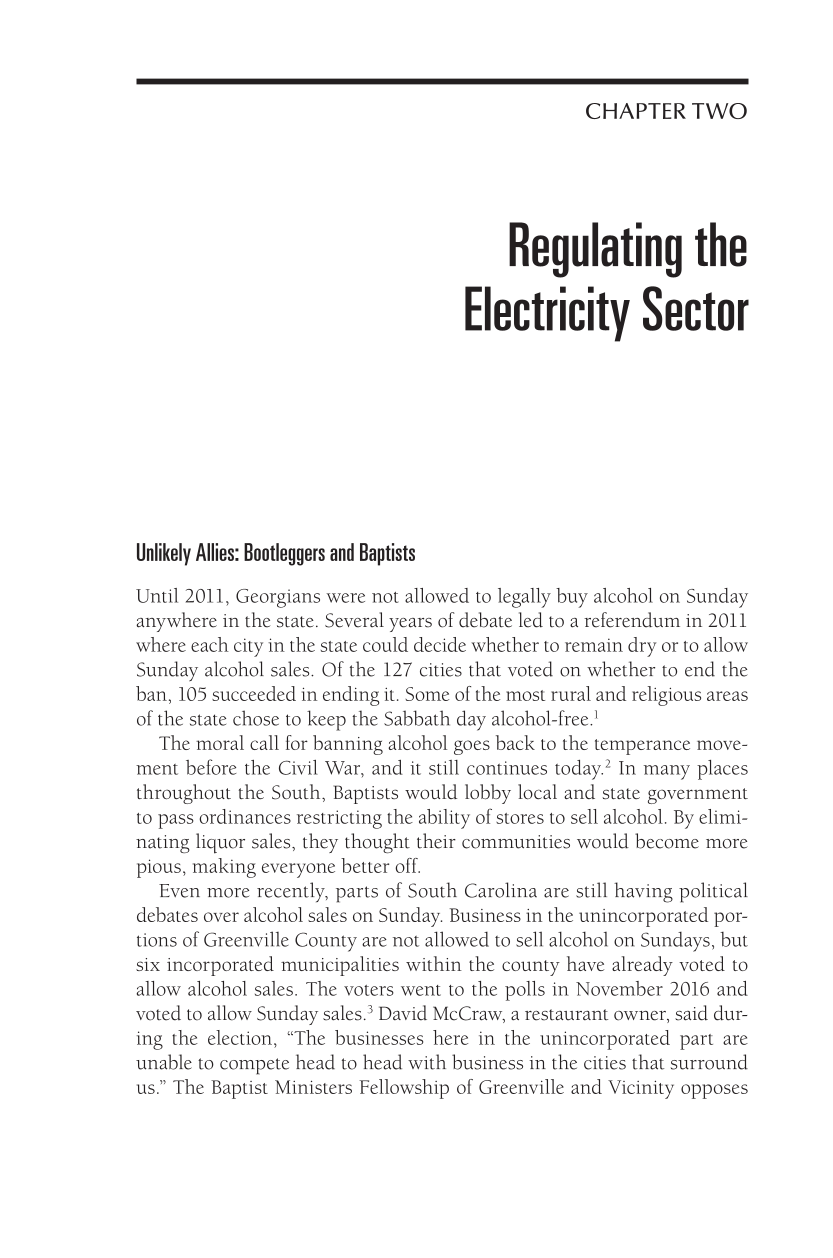CHAPTER TWO
Regulating the
Electricity Sector
Unlikely Allies: Bootleggers and Baptists
Until 2011, Georgians were not allowed to legally buy alcohol on Sunday
anywhere in the state. Several years of debate led to a referendum in 2011
where each city in the state could decide whether to remain dry or to allow
Sunday alcohol sales. Of the 127 cities that voted on whether to end the
ban, 105 succeeded in ending it. Some of the most rural and religious areas
of the state chose to keep the Sabbath day alcohol-free.1
The moral call for banning alcohol goes back to the temperance move-
ment before the Civil War, and it still continues today.2 In many places
throughout the South, Baptists would lobby local and state government
to pass ordinances restricting the ability of stores to sell alcohol. By elimi-
nating liquor sales, they thought their communities would become more
pious, making everyone better off.
Even more recently, parts of South Carolina are still having political
debates over alcohol sales on Sunday. Business in the unincorporated por-
tions of Greenville County are not allowed to sell alcohol on Sundays, but
six incorporated municipalities within the county have already voted to
allow alcohol sales. The voters went to the polls in November 2016 and
voted to allow Sunday sales.3 David McCraw, a restaurant owner, said dur-
ing the election, “The businesses here in the unincorporated part are
unable to compete head to head with business in the cities that surround
us.” The Baptist Ministers Fellowship of Greenville and Vicinity opposes

























































































































































































































